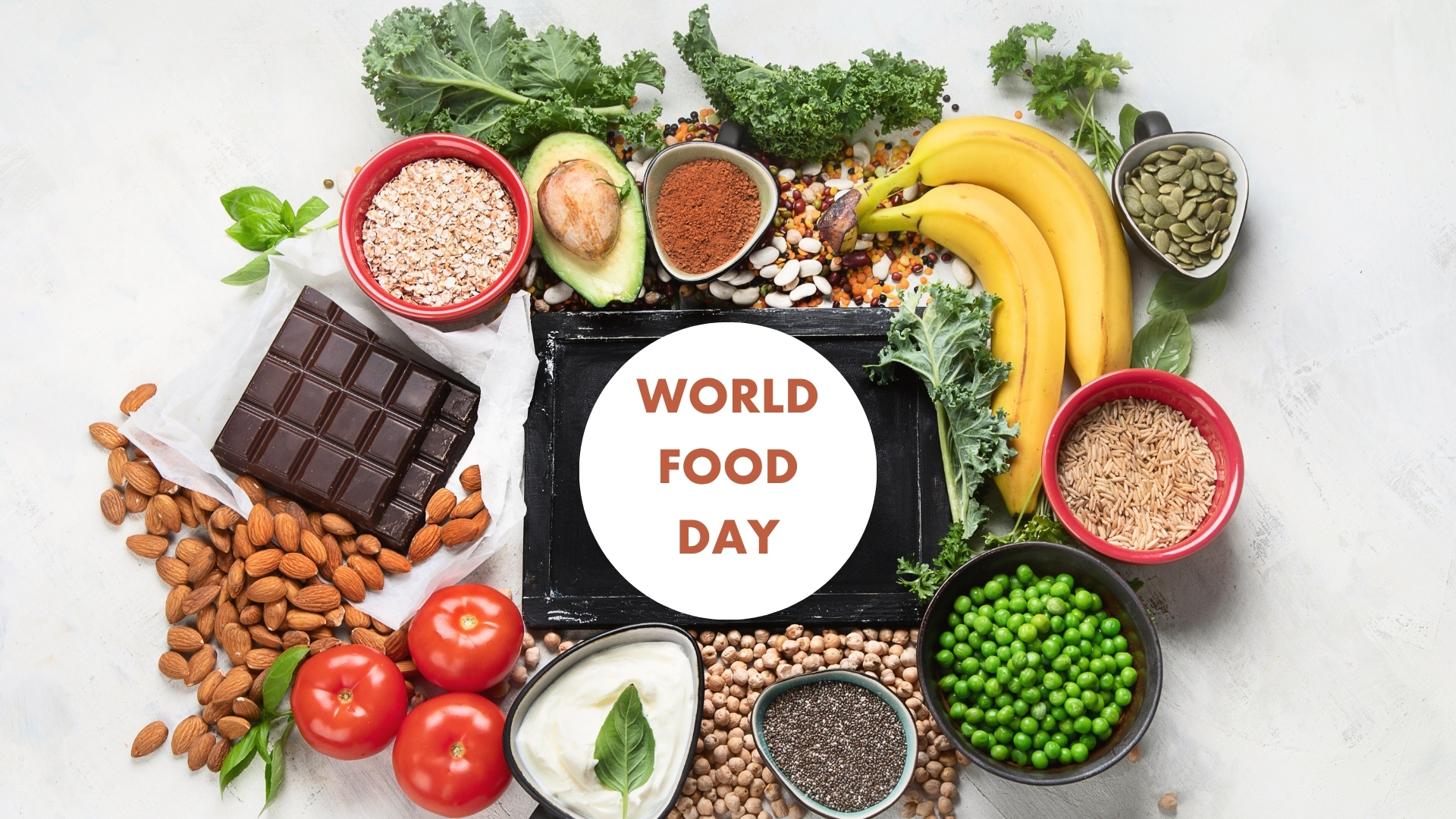World Food Day: Adopt These Healthy Eating Habits
Welcome to the world of conscious eating and vibrant well-being! On this World Food Day, we invite you to explore and adopt healthy eating habits that not only nourish your body but also contribute to a sustainable future. In this comprehensive guide, we’ll take you on a journey through a rich tapestry of dietary wisdom and delicious culinary experiences. From understanding the importance of mindful eating to practical tips for a balanced diet, this article is your roadmap to a healthier, happier you.
History Behind World Food Day
World Food Day has a rich history dating back to 1979, when it was established by the Food and Agriculture Organization (FAO) of the United Nations. The goal was to raise awareness about hunger and encourage action to alleviate it. Since then, it has been observed every year on October 16th, commemorating the founding of the FAO in 1945.
Why World Food Day Matters
World Food Day matters because it highlights an issue that affects millions of people globally. Hunger is a stark reality for many, and this day serves as a reminder that we must take action. With the world’s population steadily increasing, ensuring food security is more critical than ever.
The Importance of Healthy Eating
Healthy eating is more than just a trend; it’s a lifestyle choice that can transform your life for the better. It’s not about strict diets or deprivation but about making informed, sustainable choices that provide nourishment for the body. By adopting healthy eating habits, you can:
1. Boost Your Energy Levels
A balanced diet rich in essential nutrients provides the body with the energy it needs to thrive. Consuming a variety of foods, such as lean proteins, whole grains, and fresh fruits and vegetables, ensures that you have a steady source of energy throughout the day.
2. Maintain a Healthy Weight
Healthy eating can help you achieve and maintain a healthy weight. By avoiding excessive consumption of high-calorie, low-nutrient foods, you can keep your weight in check and reduce the risk of obesity.
3. Enhance Your Immune System
The right nutrients strengthen your immune system, making you less susceptible to illnesses. Vitamins, minerals, and antioxidants found in fruits and vegetables, for example, fortify your body’s defense mechanisms.
4. Improve Your Mental Clarity
A well-balanced diet isn’t just beneficial for your physical health; it also supports your mental well-being. Nutrient-rich foods contribute to better concentration, memory, and cognitive function.
5. Reduce the Risk of Chronic Diseases
Adopting healthy eating habits can significantly reduce your risk of chronic diseases such as heart disease, diabetes, and certain types of cancer. A diet high in fiber, antioxidants, and healthy fats can work wonders for your long-term health.

Adopt These Healthy Eating Habits
Now that we’ve established the importance of healthy eating, let’s dive into the key habits you should adopt to optimize your nutrition and well-being:
1. Balanced Plate Method
One of the most effective ways to ensure you’re getting a well-rounded meal is by following the “balanced plate” approach. Divide your plate into quarters, dedicating one-quarter to lean protein, one-quarter to whole grains, and half to fruits and vegetables. This method ensures you’re getting a variety of nutrients in every meal.
2. Portion Control
Overeating can lead to weight gain and other health issues. Practice portion control by using smaller plates, being mindful of portion sizes, and paying attention to your body’s hunger cues.
3. Hydration
Staying properly hydrated is vital for overall health. Drink an adequate amount of water throughout the day, and consider herbal teas and infused water for added variety.
4. Limit Processed Foods
Processed foods are often high in unhealthy fats, sugars, and artificial additives. Minimize your intake of such foods and opt for whole, unprocessed alternatives whenever possible.
5. Mindful Eating
Slow down and savor your meals. Mindful eating involves being present during your meals, paying attention to taste, texture, and how you feel while eating. It helps prevent overeating and fosters a healthier relationship with food.
6. Regular Meal Times
Establish a routine for your meals. Eating at regular intervals helps regulate your metabolism and prevents unhealthy snacking.
7. Meal Planning
Plan your meals in advance to ensure that you have healthy options readily available. This reduces the likelihood of grabbing less nutritious choices when you’re in a hurry.
8. Include Healthy Snacks
Snacking can be a part of a healthy diet, provided you choose nutritious options. Nuts, Greek yogurt, and fresh fruit are great choices for satisfying your midday hunger.
9. Read Food Labels
Become a label detective. Reading food labels can help you make informed choices about the products you purchase, allowing you to avoid hidden sugars and unhealthy additives.
10. Cook at Home
Home-cooked meals give you complete control over the ingredients used, making it easier to create nutritious and balanced dishes.
World Food Day: Final Words
World Food Day is a reminder of the power we hold in shaping our health and the world around us through our eating habits. By adopting these healthy eating practices, you not only nourish your body but also contribute to a more sustainable and mindful world. Remember, every meal is an opportunity to make a positive impact. So, let’s celebrate World Food Day by adopting these healthy eating habits and savoring the flavors of a brighter, healthier future.

Frequently Asked Questions (FAQs)
Q: How can I practice mindful eating in a fast-paced life?
A: Mindful eating can be practiced even in a busy life. Start by setting aside a few minutes for each meal. Focus on your food, chew slowly, and savor each bite. Gradually, you’ll find it becomes a natural part of your routine.
Q: What are some eco-friendly food choices?
A: Eco-friendly food choices include buying locally sourced products, reducing meat consumption, and minimizing food waste. These actions help conserve resources and reduce the carbon footprint.
Q: Can you suggest healthy snacks for between meals?
A: Opt for snacks like yogurt with berries, a handful of mixed nuts, or carrot sticks with hummus. These snacks are nutritious and will keep you energized.
Q: How can I ensure my food is safe to eat?
A: To ensure food safety, follow guidelines for proper food storage, wash your hands and utensils before cooking, and cook food to the recommended temperature. Additionally, avoid leaving perishable items at room temperature for too long.
Q: Why is staying hydrated important?
A: Staying hydrated is crucial, as water supports various bodily functions, including digestion, circulation, and temperature regulation. It also helps in removing waste and toxins from the body.
Q: What are some sustainable practices for reducing food waste?
A: To reduce food waste, plan your meals, use leftovers creatively, and compost kitchen scraps. These actions not only reduce waste but also save you money.














2 comments